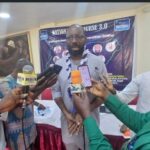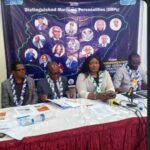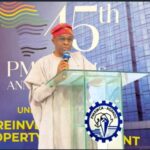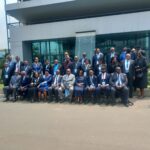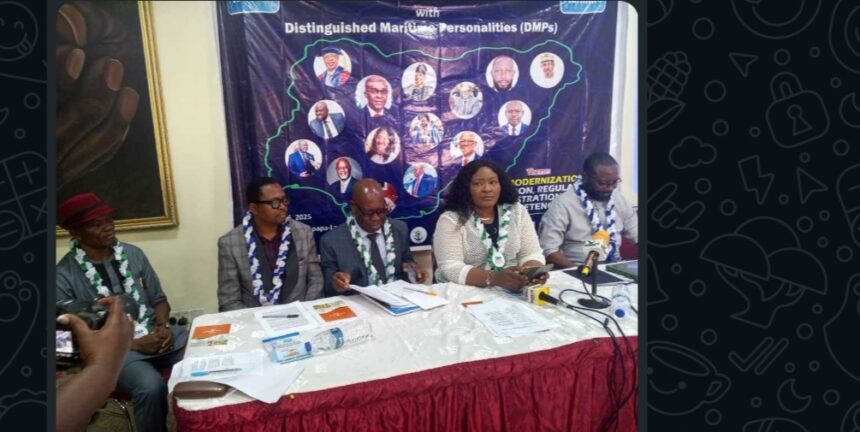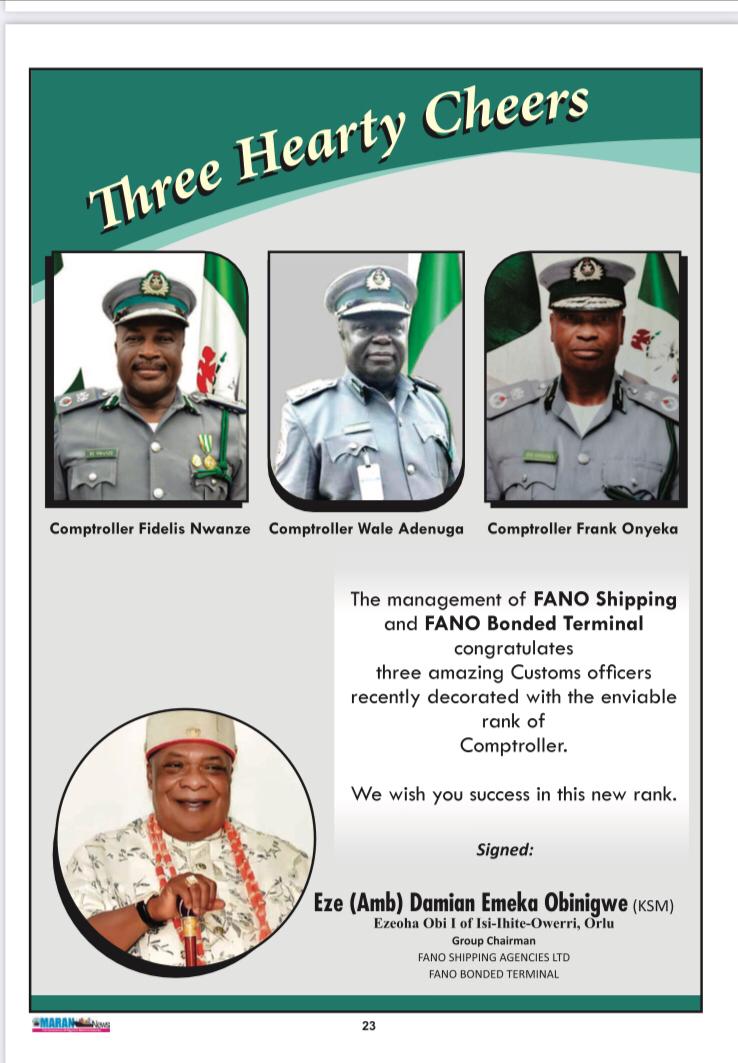By Sandra Chukwunyere
The 2025 National Discourse, hosted by Maritime Nigeria has issued a clarion call to the Federal Government to recommit to transformative port reforms. This call to action comes at a critical juncture, as Nigeria’s maritime sector continues to grapple with inefficiencies and outdated infrastructure.
The event brought together industry stakeholders and experts to discuss the theme “Port Modernization: Automation, Regulation, Administration, and Competencie” at Rockview Hotel Apapa,Lagos on Thursday.
Delivering the keynote address, Captain Warredi Enisuoh ,Executive Director, Operations & Technical Tantita Security Services Nigeria Limited emphasized the need for port modernization.
He noted that Nigeria’s ports have the potential to become a major hub for trade and commerce, but this can only be achieved through significant investment in infrastructure and technology. The implications of his address were clear: Nigeria must prioritize port reform to remain competitive in the global market.
Captain Enisuoh explained that port automation is realized via three interconnected stages: offshore, terminal yard, and hinterland, each requiring strategic planning and seamless coordination. He expressed optimism that Nigeria has the potential to achieve port modernization driven by digitalization and automation but cautioned against forcing modernization within the existing old port.
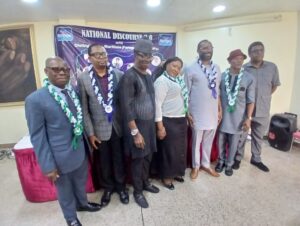
In his remarks, Captain Sunday Umoren, Secretary General of the Abuja MoU, highlighted the importance of digitalization and automation in port operations. He revealed that Africa loses $2.5 billion annually to port inefficiencies and emphasized that digitalized ports could cut vessel turnaround time by 65% and operational costs by as much as 25%.
Captain Umoren who was represented by Engr. Richard Owolabi, cited Lekki Deep Seaport as a reflection of a true modern port system and a beacon of progress powered by automation with enhanced deep-water capacity.
Dr. Oluwasegun Musa, Chief Consultant, Widescope International Group, presented a comprehensive roadmap to reposition Nigeria’s ports to serve as a global competitive hub. He proposed a four-pillar strategy that includes administration, digitalization, automation, and competency development.
According to Dr. Musa, Nigeria’s ports currently cost the economy over ₦1 trillion annually due to inefficiencies, with cargo dwell times exceeding 21 days.
Mrs. Rollens Macfoy, President of Women in Maritime (WIMA) Nigeria, emphasized the need for human capital development in the maritime sector. She noted that over 40% of port jobs now require tech proficiency, yet fewer than 30% of workers in developing regions are trained.
Mrs. Macfoy also highlighted the importance of investing in digital skills and promoting a culture of innovation and entrepreneurship.
The Managing Editor of Maritime Nigeria, Kelvin Kagbare, welcomed participants and described the event as a celebration of Nigeria’s maritime sector’s finest minds, who have been selected for honor as Distinguished Maritime Personalities (DMPs). The decorated DMPs included High Chief Government Ekpemupolo (Tompolo), Captain Sunday Umoren, Captain (Dr.) Warredi Enisuoh, Mrs. Mcfoy Rollens, Dr. Oluwasegun Musa, and NIMASA.Each of these individuals was recognized for their pivotal roles in maritime safety, administration, and innovation.
Kagbare noted that the event was a call to action for the Federal Government to prioritize port reform and modernization.
He emphasized that Nigeria must invest in digital infrastructure, promote private sector participation, and develop the skills and competencies needed to drive growth and competitiveness in the maritime sector.
However, the challenges facing Nigeria’s ports are numerous, including congestion, inefficiency, and inadequate infrastructure.
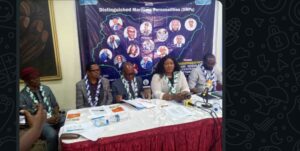 Newspoints247 reports that the 2025 National Discourse has highlighted the need for urgent action to reform and modernize Nigeria’s ports. The speakers and stakeholders at the event have proposed several recommendations, including investing in digital infrastructure, promoting private sector participation, and developing the skills and competencies needed to drive growth and competitiveness in the maritime sector. By working together, stakeholders can unlock the full potential of Nigeria’s maritime sector and drive economic growth and development.
Newspoints247 reports that the 2025 National Discourse has highlighted the need for urgent action to reform and modernize Nigeria’s ports. The speakers and stakeholders at the event have proposed several recommendations, including investing in digital infrastructure, promoting private sector participation, and developing the skills and competencies needed to drive growth and competitiveness in the maritime sector. By working together, stakeholders can unlock the full potential of Nigeria’s maritime sector and drive economic growth and development.


